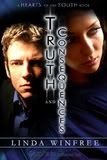Heat in the Sheets
This is a timely subject as I'm taking an online course given by Mary Buckham: Sex Between the Pages: Understanding and Writing Sexual Tension.

Only, after I read the posts thus far, I realized sexual tension isn't something that could be summed up in a few paragraphs. Numerous volumes of information, scientific study and interpretation of those studies exist on just this subject.
On Valentine's Day, my post contained interesting, little-known facts about love—the scientific side of romance. And what I've discovered from both that article and this course with Mary is that sexual attraction is a truly complex, yet basic evolutionary design.
Now, as a romantic at heart, I'm not thrilled with this information. At my core, I believe in chemistry--the intangible kind. The kind that draws you to one man, but not another. The kind that makes it impossible to get that man out of your mind, out of your heart, out from under your skin. Makes it physically and emotionally impossible to resist him no matter how hard you try.
My heart of my hearts floats in a cloud of pixie dust and believes in soul mates.
So, you can see how this might cause some conflict for me. As a writer, I need to understand the indisputable biological facts and use them to intensify the physical element of my romances. But as a romantic, I need to honor my belief in meant-to-bes, in fate and destiny, in the perfect fit and forever love.
I'm still working on it. When I have a major break though, you'll be the second to know.
For now, I can say this about creating and keeping sexual tension:
Sexual = attraction. Tension = conflict
Those 12 steps of intimacy (which I discovered via Mary's class were created by a well renowned researcher after years of studying both humans and primates...not Linda Howard--DUH...) are really just the elements of showing attraction. As the attraction grows, the steps advance. There is some tension involved, considering each step has to be accepted by the love interest to move forward and any rejection cuts the aggressor out of the running (a sort of romantic survivor), but because the signs are subtle, the tension is low.
IMHUO, sexual tension comes from wanting something you can't have, or shouldn't have, for either internal or external reasons. (Of course, both is best.) Something that, when you have it, will only complicate every aspect of your life--some ways good, some ways not-so-good.
And that's just what we want for our heroes and heroines--love and conflict.
I'll leave you with a quote from Linda Howard, one of the masters of sexual tension:
To write really sensual, sexy books, you need to understand the basis of the sex drive, and how extremely powerful it is--not the birds and the bees part of it, but why we make love as we do. You can't write about sex and intimacy until you understand it. You can call them love scenes, or you can call them sex scenes. It doesn't matter what you call them, so long as you understand enough about the genre to know that the emotional attachment has to be there before your two main characters become physically intimate.
Which camp do you reside in--the scientific or the romantic?

Only, after I read the posts thus far, I realized sexual tension isn't something that could be summed up in a few paragraphs. Numerous volumes of information, scientific study and interpretation of those studies exist on just this subject.
On Valentine's Day, my post contained interesting, little-known facts about love—the scientific side of romance. And what I've discovered from both that article and this course with Mary is that sexual attraction is a truly complex, yet basic evolutionary design.
Now, as a romantic at heart, I'm not thrilled with this information. At my core, I believe in chemistry--the intangible kind. The kind that draws you to one man, but not another. The kind that makes it impossible to get that man out of your mind, out of your heart, out from under your skin. Makes it physically and emotionally impossible to resist him no matter how hard you try.
My heart of my hearts floats in a cloud of pixie dust and believes in soul mates.
So, you can see how this might cause some conflict for me. As a writer, I need to understand the indisputable biological facts and use them to intensify the physical element of my romances. But as a romantic, I need to honor my belief in meant-to-bes, in fate and destiny, in the perfect fit and forever love.
I'm still working on it. When I have a major break though, you'll be the second to know.
For now, I can say this about creating and keeping sexual tension:
Sexual = attraction. Tension = conflict
Those 12 steps of intimacy (which I discovered via Mary's class were created by a well renowned researcher after years of studying both humans and primates...not Linda Howard--DUH...) are really just the elements of showing attraction. As the attraction grows, the steps advance. There is some tension involved, considering each step has to be accepted by the love interest to move forward and any rejection cuts the aggressor out of the running (a sort of romantic survivor), but because the signs are subtle, the tension is low.
IMHUO, sexual tension comes from wanting something you can't have, or shouldn't have, for either internal or external reasons. (Of course, both is best.) Something that, when you have it, will only complicate every aspect of your life--some ways good, some ways not-so-good.
And that's just what we want for our heroes and heroines--love and conflict.
I'll leave you with a quote from Linda Howard, one of the masters of sexual tension:
To write really sensual, sexy books, you need to understand the basis of the sex drive, and how extremely powerful it is--not the birds and the bees part of it, but why we make love as we do. You can't write about sex and intimacy until you understand it. You can call them love scenes, or you can call them sex scenes. It doesn't matter what you call them, so long as you understand enough about the genre to know that the emotional attachment has to be there before your two main characters become physically intimate.
~Linda Howard
Which camp do you reside in--the scientific or the romantic?







3Comments:
I watched a segment on the Today show this morning about the chemical side of love - the amount of oxytocin released when you're falling in love. It was really interesting.
I love the science part of it (obviously), but I don't tend to think of the chemicals released when I'm writing. I think you summed up sexual tension well, J, when you said: ...sexual tension comes from wanting something you can't have, or shouldn't have, for either internal or external reasons.
I'm on the scientific and the romantic side. If there's no heart connection, we'd be bopping every person we see, wouldn't we? But if there's no science, there would be no sex. That wouldn't be much fun.
Joan,
I'm definately in the romantic group-- but I tend to base that romantic reaction (physical and emotional) on scientific evidence. I think its all in the presentation.
Post a Comment
<< Home